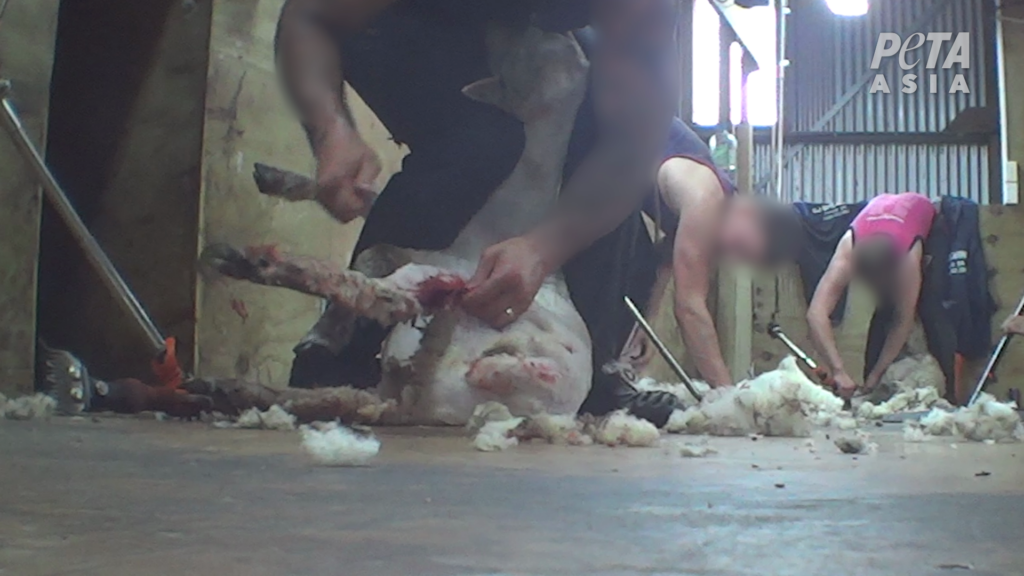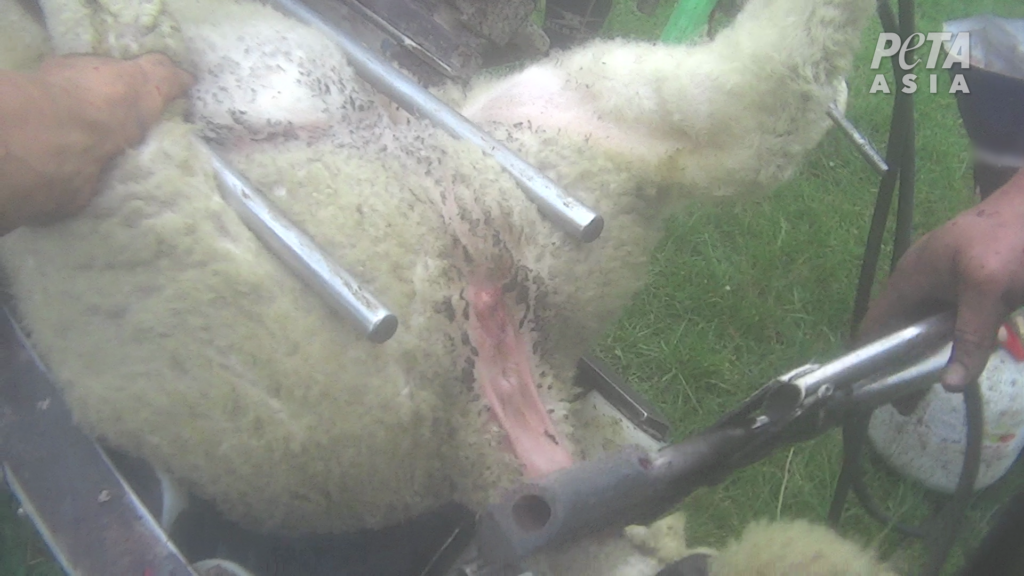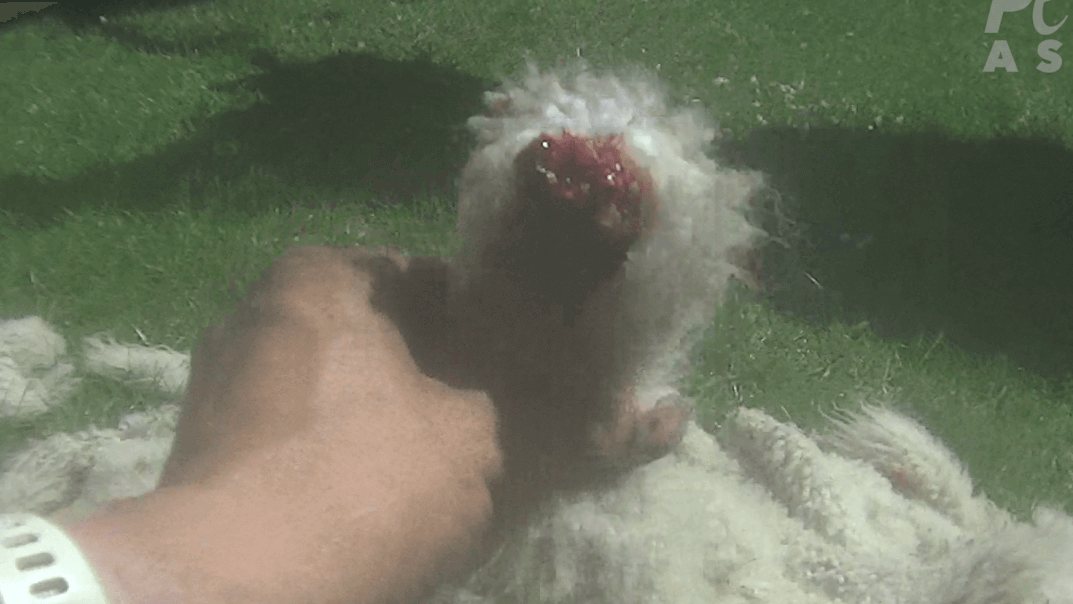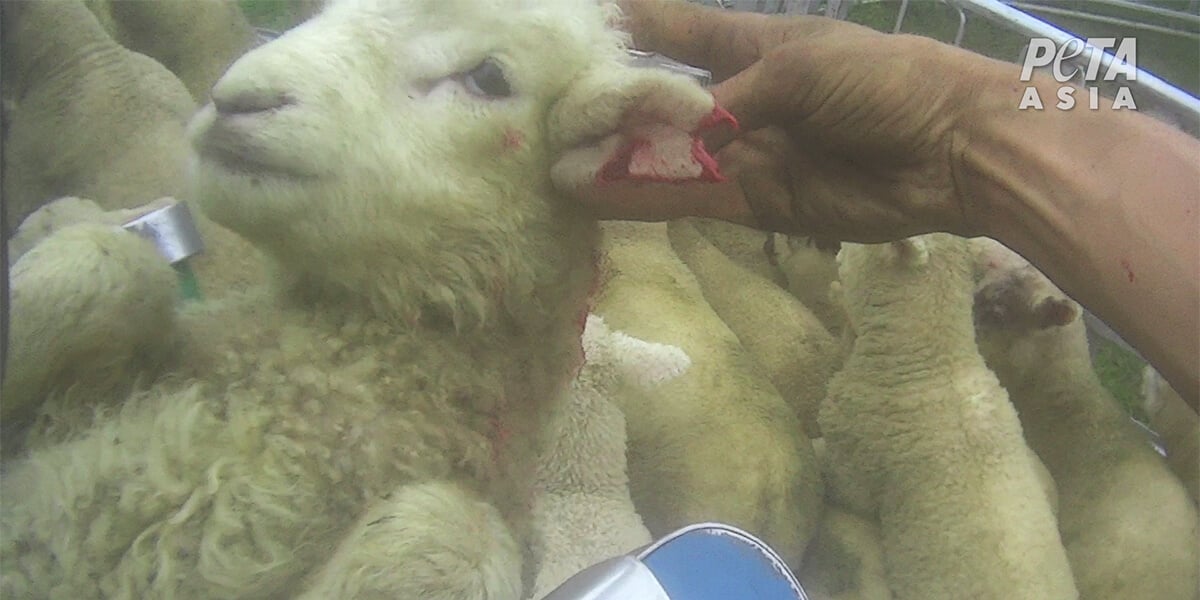IKEA Complicit in New Zealand’s Wool Industry Abuse
IKEA continues to support this cruelty by selling New Zealand wool. Take action for suffering sheep now!
Second PETA Exposé Reveals Rampant Abuse in New Zealand’s Wool Industry
IKEA, the world’s largest furniture retailer, claims it’s working to use only “responsibly sourced wool” for its rugs. But this is nothing more than a marketing ploy that props up the wool industry.
A second PETA Asia-Pacific investigation into New Zealand’s wool industry has once again revealed it is rife with rampant abuse at every stage of operation. Covering 23 farms, investigators uncovered that workers slice lambs’ bodies without any pain relief and that shearers punch struggling sheep in the face and slam them to the floor.
By continuing to sell rugs made with New Zealand wool, IKEA and other furnishing companies like RH, Crate & Barrel, and Rugs USA are complicit in sheep’s suffering. Don’t let them sweep this cruelty under the rug—urge them to ditch wool now!
The Dark Side of New Zealand’s Wool Industry

Suffering Starts Young for Sheep in New Zealand
Did you know sheep are born with long tails, just like dogs?
The wool industry has selectively bred merino sheep with wrinkled skin to produce as much wool as possible. However, these skin folds collect urine and moisture, creating an ideal environment for flies to lay their eggs. Maggots can eat sheep alive, so farmers cut off the tails of lambs in a crude attempt to prevent this.
In New Zealand, it is legal for a farmer to burn and cut lambs’ tails off without pain relief. These lambs are fully aware and feel excruciating pain as their sensitive tails are cut and burned off with a hot iron. No pain relief is provided, even as the fuel for the tool runs low, prolonging the agony.
When questioned about penalties if lambs die during the tail-docking process, a worker bluntly responded, “Livestock is deadstock, bro.”

Sheep in New Zealand Are Cut Up and Beaten for Wool
Workers race against the clock in shearing sheds because they’re usually paid by the volume of wool they cut off, not by the hour. This rushed, aggressive shearing left many sheep cut up and bleeding, and workers stitched up their wounds without any painkillers.
Just as you would be, sheep are scared of being pinned down. This fear makes them uncooperative during the shearing process, frustrating shearers who often resort to violence to control them. Investigators witnessed shearers punching, stomping on, and throwing sheep down chutes. One worker even slammed a sheep’s head twice against a wooden board.
Not a single worker reacted to these violent incidents. It was just another day in a shearing shed in New Zealand.
The abuse extended beyond the shearers. Investigators witnessed farmers kicking lambs and sheep. They also used dogs to terrorize and control the sheep, with the dogs sometimes biting the animals and causing even more injuries.

The Wool Industry Is a Death Industry
The bodies of dead sheep were scattered around the properties visited, including one whose remains were tossed from the second floor of a shearing shed—likely having died from injuries sustained during shearing.
Workers in the wool industry kill sheep, either through direct violence or neglect. Sheep do not get a retirement in sunny pastures in the wool trade. Once their wool production declines, all sheep are killed when they’re no longer viewed as “useful” commodities for the trade.
“Humane” Wool Is a Myth
Standards like the Responsible Wool Standard and ZQ Merino were designed to market wool as “ethical,” and criticism about animal welfare issues in the wool trade continues to mount. PETA’s exposés of over 150 wool industry operations from Australia to England and Argentina to the U.S. have revealed systemic abuse of sheep, including on “responsible” and “local” farms.
A 2024 PETA Asia-Pacific Investigation documented entrenched cruelty at “humane” certified facilities in New Zealand—which claim to produce the “world’s leading ethical wool.” Workers beat, kicked, and stomped on sheep. Rough handling during shearing left sheep with gaping wounds stitched up without painkillers on the filthy shearing shed floors. On one farm, investigators saw the same collapsed sheep several times over two days while her condition deteriorated. In the end, without even attempting to stun her, a farmer cut her throat and dumped her body into a trash pit. Another sheep was smothered to death in a pen, but she was still shorn, and her wool was placed with the others to sell.
This latest investigation proves that there is no difference between “humane” certified facilities and non-certified farms. The same cruelty and disregard for animals are pervasive across the industry. Don’t fall for buzzwords and marketing—no matter the standard, the wool industry will always be cruel.
How You Can Help Sheep
Every dollar spent on a wool rug or sweater helps line the pockets of the workers who punch, kick, and kill sheep. Choosing to buy wool supports the abuse of sheep. Please, don’t buy it and avoid companies like IKEA, RH, Crate & Barrel, and Rugs USA, which all sell rugs made from New Zealand wool. We can help end the suffering of sheep by opting for only animal-free materials like bamboo, cotton, hemp, recycled polyester, rayon, TENCEL, and viscose.

Urge Companies to Ditch Wool
Please send polite comments to:
Janet Hayes
CEO
Crate and Barrel
[email protected]
Then, use the form to ask more companies to ditch wool.